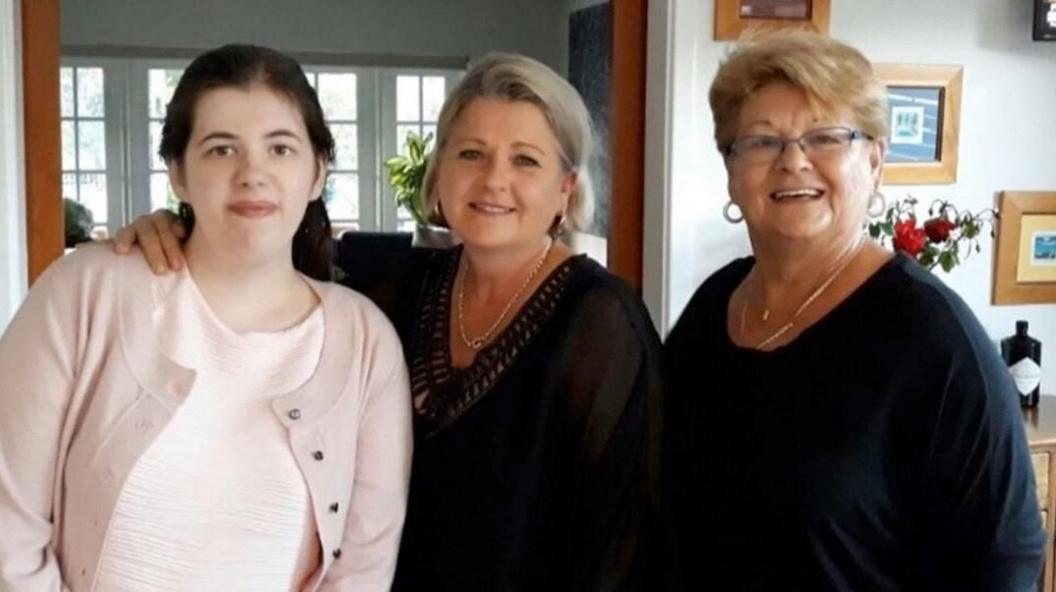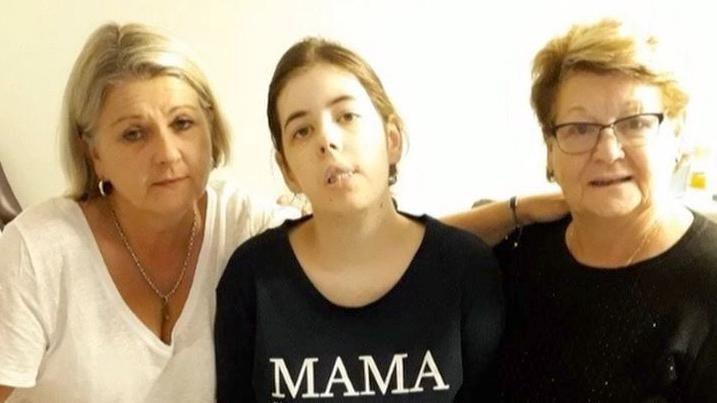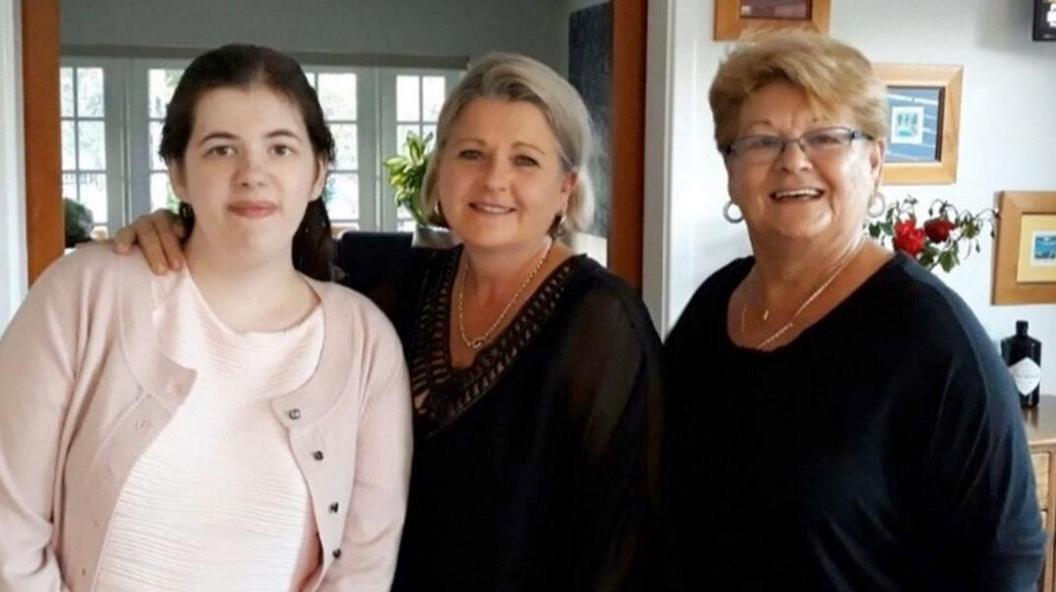Failings 'may have contributed to woman's death'

Chloe, with her aunt Lisa and grandmother Jeannette Every, in Australia in 2018
- Published
A coroner has ruled that "gross failure" in the hospital care of a disabled woman "possibly contributed to her death".
Chloe Every, who had learning difficulties and a muscle-wasting condition, was admitted to Queen's Hospital in Romford, east London, in April 2019 where a scan revealed possible signs of bowel cancer.
The 27-year-old patient was prescribed morphine - despite it posing a risk to people with her muscle condition - and suffered a first cardiac arrest on 8 May.
She was later moved into a general ward where she died on 14 May that year, in a state of "agitation and pain", her family told an inquest last week.
An initial review by the Barking, Havering and Redbridge University Hospitals NHS Trust subsequently referred the case to the coroner in 2019, advising that the cause of death was advanced cancer and myotonic dystrophy (MD).
But the inquest into Ms Every's death revealed "failures" in the care she received in hospital - including the prescription of morphine, which can cause respiratory problems for people with MD, the absence of specialist learning disability nurses to assist her in communicating with staff, and the administration of an enema to Ms Every when she was seemingly asleep and unable to consent.

Chloe, centre, had myotonic dystrophy and struggled to communicate
Senior coroner Graeme Irvine, delivering his conclusion at East London Coroner's Court on Monday, said these failures "possibly contributed to her death".
"Each of these actions taken alone would not necessarily amount to a gross failure," Mr Irvine told the court in Walthamstow.
"But taken together, the failures in care do amount to gross failure."
Ms Every's death was caused by complications of a cardiac arrest and the coroner said it was "probably" contributed to by the morphine given to Ms Every in treatment for bowel cancer.
The coroner was critical of hospital staff, saying evidence had showed they "haven't got a clue at how appropriate consent procedures should be undertaken".
He also criticised the lack of "clear and contemporary records" of Ms Every's care by the Trust's doctors and nurses, which meant he was unable to apply the legal test for neglect and determine whether or not there was a "clear causation" between the identified failures and Ms Every's death.
Mr Irvine ordered for a Regulation 28 Prevention of Future Deaths report to be sent to the Trust - as well as to the Secretary of State for Health and Social Care, and Quality Care Commission (CQC).
Caron Heyes, a solicitor on behalf of Ms Every's family, said in a statement: "I cannot forgive or forget that Chloe died after terrible care that marred her last days which should have been spent in peace with her family, and that the Trust deliberately told the coroner that she died of cancer and myotonic dystrophy.
"If I had not persisted in forcing through an independent Level 3 investigation, the role of the cardiac arrest in causing her death would never have come out and this inquest would never have been heard."
Ms Every's aunt Lisa said the inquest had raised "serious patient safety issues".
"It is shocking. Families should not have to force hospitals to properly investigate their errors," she added.
Matthew Trainer, chief executive of the Trust, said in a statement: "We are extremely sorry Chloe did not receive the care she should have in our hospital.
"We'd also like to apologise to her family for the distress caused by our initial investigation into her death, which was not thorough enough.
"We hope it provides some small comfort that since her death in 2019 we have taken steps to improve care for patients with learning disabilities."
Listen to the best of BBC Radio London on Sounds and follow BBC London on Facebook, external, X, external and Instagram, external. Send your story ideas to hello.bbclondon@bbc.co.uk, external
- Published18 October 2024
